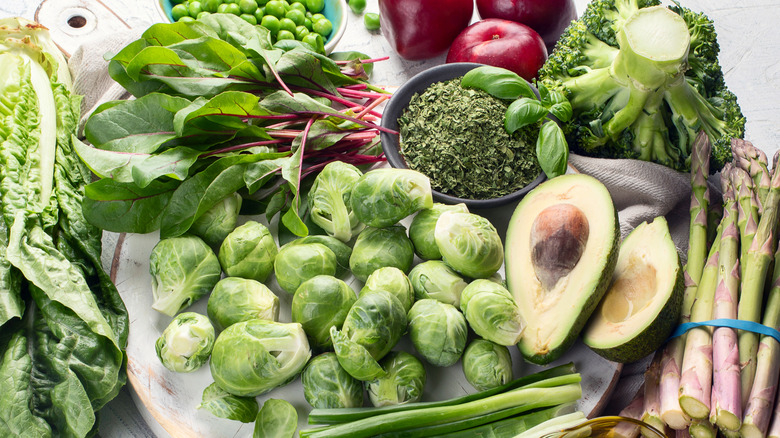This Is What Vitamin K Really Does For Your Body
Vitamin K refers to a group of essential vitamins that perform various functions in the body. According to Medical News Today, vitamin K comes in two main forms: phylloquinone, or vitamin K1, and menaquinone, or vitamin K2. Phylloquinone is generally consumed from plants and converted to menaquinone in the large intestine. It is then absorbed in the small intestine and stored in the body.
Vitamin K plays an important role in the body. It supports healthy bones and may decrease the risk of developing osteoporosis. It aids in cognitive health, including memory. It is key to maintaining good heart health by keeping blood pressure low. It is also important to help blood clot naturally.
A deficiency of this vitamin can cause excessive bleeding, weak bones, and poor heart health. However, low levels of vitamin K that would cause these kinds of issues are rare. The most common cause of a vitamin K deficiency is another health condition that prevents someone from properly absorbing the nutrient in the small intestine. This may include gallbladder disease, cystic fibrosis, celiac disease, or Crohn's disease (via Live Science).
Vitamin K can be found in a variety of foods
Fortunately, it is easy to get enough vitamin K in your diet through foods alone. Vitamin K1 is found in plants like kale, mustard greens, swiss chard, collard greens, spinach, broccoli, green beans, beet greens, parsley, cabbage, and Brussels sprouts (via Healthline). Vitamin K2 is found in some meats and fermented foods like natto, beef liver, pork chops, chicken, and goose liver. It can also be found in avocado, cheese, kiwi, prunes, and soybean oil.
Overall, the best sources of vitamin K are dark leafy green vegetables. There are plenty of reasons to get more of these in your diet. It is recommended that children eat ½ cup to 1 ½ cups per week, adult women eat 1 ½ cups per week, and adult men eat 1 ½ to 2 cups per week (via Verywell Fit). In addition to vitamin K, these foods contain vitamin A, vitamin C, antioxidants, fiber, folate, magnesium, calcium, iron, and potassium.
You can incorporate more leafy greens into your diet by adding them to scrambles, soups, smoothies, sauces, and casseroles. They are usually inexpensive and can be found in most grocery stores.


